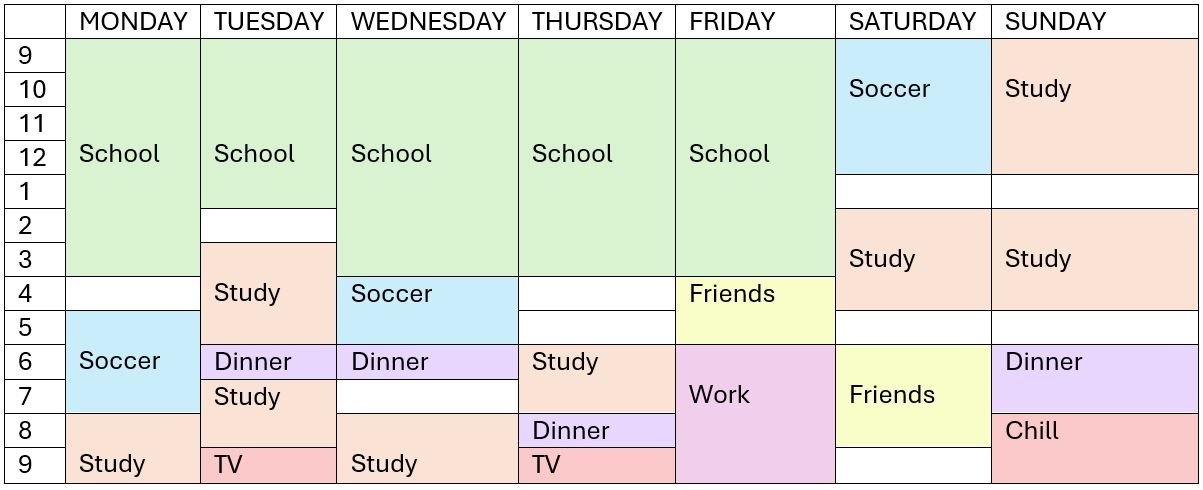5 Ways to Support your Child Through Year 12
The HSC is one of the most demanding and stressful times in a young person’s education, and potentially your life. For parents, it can feel just as challenging, you want to help but without adding pressure or stepping on your child’s independence.
The HSC has likely changed a lot since you went through it, and you’re not sure how you can best support your child.
At Pinnacle Learners, we’ve guided hundreds of students and families through Year 12, and we’ve seen how the right kind of support can make all the difference.
Lets jump straight in.
1. Create a Productive Study Space
The environment where your child studies has a huge impact on their focus, energy, and motivation. One of the biggest mistakes is letting study happen in the bedroom, where the line between rest and work gets blurred. Psychologists have shown that mixing sleep and study in the same space can reduce both the quality of rest and concentration. If possible, move your child’s desk into a study, spare room, or even a common area where they can separate study time from relaxation time.
The goal is to make the space appealing, not intimidating. A clutter-free desk, a comfortable chair, and good lighting all go a long way to reducing stress and increasing productivity. Encourage your child to keep chargers handy, stationery within reach, and distractions out of sight (such as keeping their phone in another room). A peaceful, quiet setting makes study time more effective and less something they dread.
2. Help Them Organise Their Time
Sample Study Schedule
The HSC involves a mountain of work: essays, assignments, practice papers, and endless revision. Without a plan, students can quickly become overwhelmed. One of the best ways to support your child is to help them organise their time effectively.
Start by building a weekly calendar. Block out their existing commitments — school hours, sports, part-time jobs, family activities — and then work out where study sessions can fit realistically. Importantly, make sure to include downtime and social breaks. Balance prevents burnout and makes the schedule feel achievable.
A simple student diary or planner from Officeworks or Kmart is a fantastic tool. Encourage your child to write in: assessment dates and exam schedules, weekly homework tasks and their study goals for each subject
The act of writing things down builds accountability and helps students see the bigger picture, especially if they tend to be a scatterbrain or get overwhelmed by the amount of work they have to do.
Parents can play a key role in gently checking that the diary is being used and that tasks aren’t slipping through the cracks. Organisation is half the battle in the HSC, and having a clear plan turns an overwhelming year into a series of achievable steps.
3. Show Interest in What They’re Studying
One of the most powerful ways you can support your child is simply by showing interest. Too often, the HSC feels like a lonely journey- spending hours behind a desk, stress piling up, feeling frustrated when they don’t know the answer
Ask your child about what they’re learning. Instead of focusing only on exams, invite them to share the most interesting things they’ve discovered in their subjects. For example, “What’s the most surprising thing you read in Legal today?” or “What’s your favourite character in your English text?”
This doesn’t just show that you care — it helps bring the joy back into learning. When students can talk about their subjects in a fun, conversational way, it reduces pressure and reminds them that study isn’t just about marks, but about developing a love for learning.
It also helps you keep up to date with their upcoming assessments. If you know what’s on the horizon, you can encourage them to prepare early and avoid last-minute stress.
4. Focus on Effort, Not Just Results
It’s natural for parents to want to see strong results, but the truth is that focusing on effort is far more effective in the long run. The HSC is a marathon, not a sprint. What matters most is that your child is consistently putting in the work, and then hopefully the marks will follow.
As a rule of thumb, students should aim for 3 to 4 hours of study per weeknight, and around 5/6 hours across the weekend (with Sundays often taken off for rest or catch up). But not all study is created equal - if your child is spending hours and hours rewriting neat notes, try to steer them towards active study, such as practising real exam-style questions. The ratio should be weighted towards doing, not just reading.
By praising effort and process, you build resilience. Instead of panicking when marks fluctuate, your child will focus on what they can control - their habits, their preparation, and their commitment.
5. Get Extra Support if Needed
Sometimes the best way to support your child is to bring in outside help. Year 12 isn’t just another school year - it shapes ATARs, university opportunities, and even career pathways. If your child is struggling to lift their marks, targeted tutoring can make a world of difference.
At Pinnacle Learners, we’ve seen students move from 50–60% to 90%+ through consistent, personalised tutoring. The difference isn’t magic - it’s about having someone who can explain concepts clearly, provide structure, and keep your child accountable week after week. It also reduces stress at home, since parents don’t have to play the role of teacher as well as supporter.
Looking for some extra support for Your HSC child?
We’ve got an incredible team of tutors at that can help!
Offering support across English, Maths, Legal Studies and more, our one-on-one lessons are available online or in person at our office in Rozelle, giving students across Sydney’s Inner West (Balmain, Leichhardt and beyond) the support they need to excel.
Over the years, our students have boosted their results by 20% or more through expert guidance, proven strategies, and mentoring that goes beyond the textbook.






